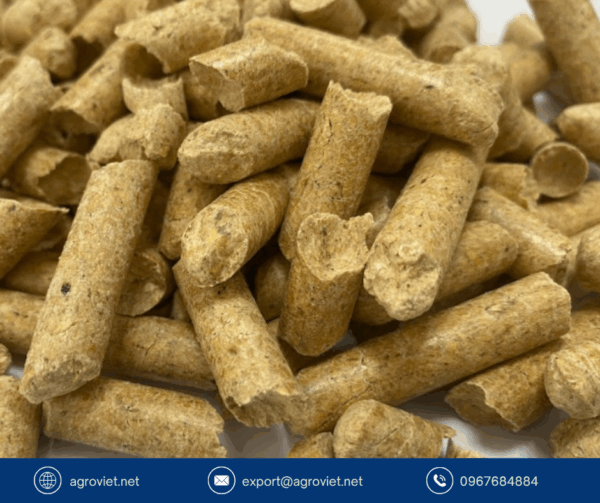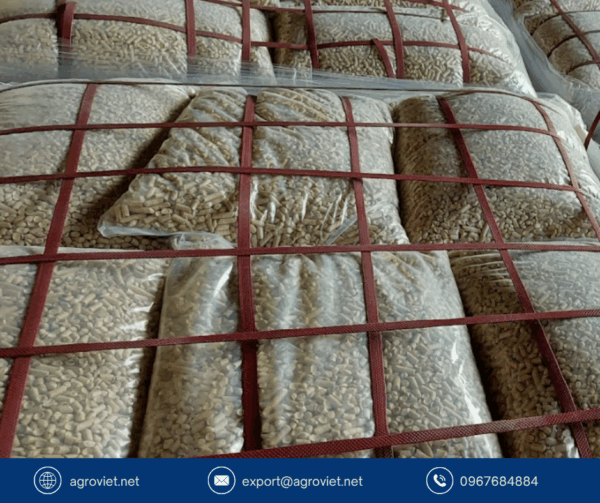Wood Pellets and Sawdust as Efficient Fuel Sources for Industrial Boilers
In the modern industrial landscape, the demand for sustainable and cost-effective energy sources has driven industries to explore renewable fuel options. Among these, wood pellets and sawdust have emerged as highly efficient and eco-friendly choices for powering industrial boilers. These biomass fuels, derived from wood processing byproducts, offer significant advantages in terms of energy efficiency, environmental impact, and economic benefits. This article explores the role of wood pellets and sawdust as fuel sources in various industries, their benefits, and their applications, with a focus on their growing popularity in industrial settings.

The Role of Biomass Fuels in Industrial Applications
Industrial boilers are critical components in sectors such as textile manufacturing, paper production, wood processing, and chemical processing. These boilers generate the heat and steam required for processes like dyeing, drying, and chemical reactions. Traditionally, industries relied on fossil fuels like coal to meet their energy needs. However, the environmental drawbacks of fossil fuels, including high carbon emissions and non-renewable nature, have prompted a shift toward biomass fuels like wood pellets and sawdust. These renewable resources provide a sustainable alternative that aligns with global efforts to reduce carbon footprints and meet stringent environmental regulations.
Wood pellets and sawdust are particularly valued in industries that prioritize sustainability and cost efficiency. Their high calorific value, ease of availability, and eco-friendly properties make them ideal for powering industrial boilers. According to industry insights, sawdust is widely used due to its low cost and accessibility, while wood pellets are favored for their consistent quality and high energy output, making them suitable for automated boiler systems.
Why Choose Wood Pellets as an Industrial Fuel?
Wood pellets are produced by compressing finely ground wood particles under high pressure, creating a dense, uniform fuel with a high calorific value. This process enhances their energy density, making them an efficient choice for industrial applications. The benefits of wood pellets include:
-
High Energy Efficiency: Wood pellets typically have a calorific value ranging from 4,300 to 4,800 kcal/kg, providing a stable and high heat output. This makes them comparable to other biomass fuels and even some fossil fuels in terms of energy efficiency.
-
Consistency and Automation: The uniform size and shape of wood pellets allow for automated feeding systems in industrial boilers, reducing labor costs and improving operational efficiency.
-
Low Environmental Impact: As a renewable resource, wood pellets produce significantly lower carbon emissions compared to coal. Their combustion releases only the carbon absorbed by trees during their growth, contributing to a near-neutral carbon cycle.
-
Cost-Effectiveness: Wood pellets are often produced from wood processing byproducts, making them a cost-effective option for industries with access to wood waste.
These attributes make wood pellets an excellent choice for industries like wood processing, where they can be sourced directly from production byproducts, and textile manufacturing, where consistent heat is essential for dyeing and finishing processes.
The Advantages of Sawdust in Industrial Boilers
Sawdust, a byproduct of wood processing, is another widely used biomass fuel in industrial boilers. Its fine texture and availability make it a practical and economical choice for many industries. Key advantages of sawdust include:
-
Affordability: Sawdust is often available at a lower cost than other fuels, as it is a byproduct of sawmills and woodworking operations. This makes it an attractive option for industries looking to reduce energy expenses.
-
Versatility: Sawdust can be used in various types of boilers, including those with grate systems or fluidized bed combustion, making it adaptable to different industrial setups.
-
Sustainability: Like wood pellets, sawdust is a renewable resource that supports environmental sustainability. Its use helps reduce waste from wood processing and contributes to a circular economy.
-
Accessibility: Sawdust is readily available in regions with active wood processing industries, ensuring a reliable supply for industrial applications.
Sawdust is particularly prevalent in the paper industry, where it is used to generate steam for pulping and drying processes, and in the wood processing industry, where it is a natural byproduct that can be repurposed as fuel.
Read more: https://www.youtube.com/watch?v=q-L-ECwGwHs

Applications in Key Industries
Wood pellets and sawdust are integral to several industrial sectors due to their efficiency and eco-friendly properties. In the textile industry, boilers powered by these biomass fuels provide the steam needed for washing, dyeing, and finishing fabrics. The consistent heat output of wood pellets ensures precise temperature control, which is critical for maintaining product quality. Sawdust, with its lower cost, is often used in smaller-scale textile operations to reduce operational expenses.
In the paper industry, wood pellets and sawdust are used to produce steam for pulping, bleaching, and drying processes. The high calorific value of wood pellets ensures efficient energy production, while sawdust provides a cost-effective alternative for facilities with access to local wood processing byproducts. Similarly, the wood processing industry benefits from these fuels by utilizing its own byproducts, such as sawdust and wood chips, to power drying and processing operations. This approach not only reduces waste but also lowers energy costs.
The chemical industry also employs wood pellets and sawdust in boilers to provide heat for chemical reactions and refining processes. The stable combustion properties of these fuels ensure reliable heat supply, which is essential for maintaining consistent production conditions.
Environmental and Economic Benefits
The shift to wood pellets and sawdust as industrial fuels aligns with global sustainability goals. These biomass fuels are renewable, reducing dependence on finite fossil fuels. Their combustion produces lower levels of sulfur and nitrogen oxides compared to coal, contributing to improved air quality. Additionally, using wood processing byproducts like sawdust and pellets supports a circular economy by repurposing waste materials into valuable energy sources.
From an economic perspective, wood pellets and sawdust offer significant cost savings. Their availability as byproducts of wood processing reduces procurement costs, particularly for industries located near sawmills or woodworking facilities. Furthermore, the consistent quality of wood pellets minimizes boiler maintenance and downtime, enhancing operational efficiency.
Challenges and Considerations
While wood pellets and sawdust offer numerous benefits, there are challenges to consider. The storage and handling of sawdust require careful management to prevent dust explosions and ensure proper combustion. Wood pellets, while easier to handle, may require investment in automated feeding systems for optimal performance. Additionally, the availability of high-quality biomass fuels can vary depending on regional wood processing activities, which may affect supply chains.
To address these challenges, industries should invest in proper storage facilities and boiler technologies designed for biomass fuels. Partnering with reliable suppliers who provide consistent quality, such as those offering stable and uncontaminated biomass products, is also crucial for ensuring uninterrupted operations.
Conclusion
Wood pellets and sawdust have become indispensable fuel sources for industrial boilers, offering a sustainable and cost-effective alternative to traditional fossil fuels. Their high calorific value, environmental benefits, and versatility make them ideal for industries such as textiles, paper, wood processing, and chemicals. By adopting these biomass fuels, industries can reduce their environmental impact, lower energy costs, and contribute to a more sustainable future. As global demand for renewable energy grows, wood pellets and sawdust will continue to play a pivotal role in powering industrial processes efficiently and responsibly.
For more information on biomass fuels and their applications in industrial settings, visit reputable suppliers and industry resources to explore sustainable energy solutions tailored to your needs.
Read more: https://vietnambestwood.com/general/pine-wood-pellets-the-green-solution/
